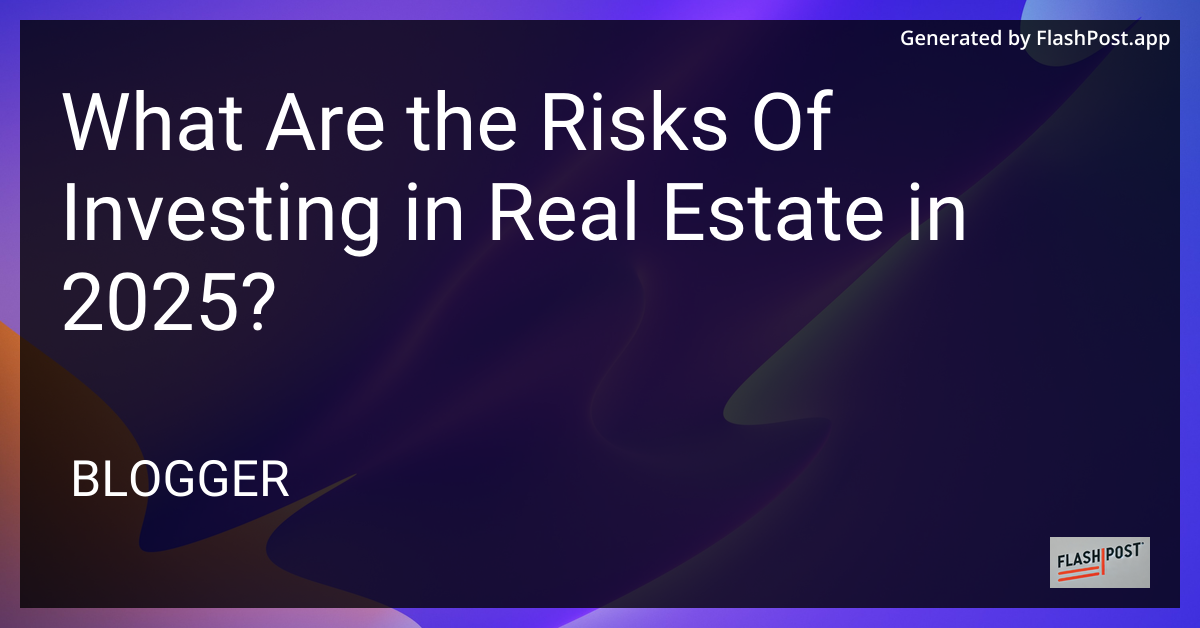What Are the Risks Of Investing in Real Estate in 2025?

What Are the Risks of Investing in Real Estate in 2025?
Real estate has long been considered a lucrative investment opportunity. However, as with any investment, it comes with its own set of risks, especially as we’re looking forward to 2025. Understanding these risks is crucial for both novice and seasoned investors who are considering expanding their portfolios in the real estate sector. In this article, we will delve into the key risks associated with real estate investment in 2025 and how investors can navigate these challenges effectively.
Economic Uncertainty
One of the most significant risks in 2025 is ongoing economic uncertainty. Global economies are still adjusting post-pandemic, and the economic landscape is constantly evolving. Changes in interest rates, inflation, and government policies can have substantial impacts on the property market. Investors need to stay informed and be prepared for potential economic shifts that could affect property values and rental yields.
Regulatory Changes
Regulatory environments are another area where investors might face challenges. Variations in taxation laws, zoning regulations, and real estate licensing requirements could pose risks. For example, understanding real estate investment in Georgia, or the Alaska real estate license requirements, could be pivotal. It’s important for investors to keep abreast of legislative changes that could impact their investments, ensuring compliance and avoiding potential legal issues.
Market Volatility
Real estate markets can be highly volatile, influenced by factors such as economic conditions, consumer sentiment, and global events. While some regions may offer attractive opportunities, others could face downturns. Investing in emerging markets, like the Nigeria real estate industry, presents both potential high rewards and high risks. Understanding local market dynamics is crucial to mitigate these risks.
Technological Disruptions
The real estate sector is not immune to technological disruptions. The rise of proptech, online platforms, and AI-driven analytics can alter how properties are bought, sold, and managed. Investors need to be adaptable, ready to leverage technology to gain insights and improve returns while being mindful of cyber threats and data privacy issues.
Climate Change and Environmental Risks
Climate change poses a significant risk to real estate, affecting property values and insurability. Investors need to consider environmental factors such as rising sea levels, natural disasters, and changes in weather patterns. Prioritizing investments in sustainable and resilient properties can be a strategic move to combat these risks.
Conclusion
While investing in real estate in 2025 presents numerous opportunities, it is not without its challenges. Economic uncertainty, regulatory changes, market volatility, technological advancements, and environmental considerations all play vital roles in shaping the landscape. By staying informed, conducting thorough research, and adopting flexible strategies, investors can navigate these risks and potentially realize significant returns in the coming years.
For more insights into specific regions and markets, consider exploring discussions about real estate investment opportunities in Georgia, or learning about the processes within the Nigeria real estate industry.


Comments
Post a Comment